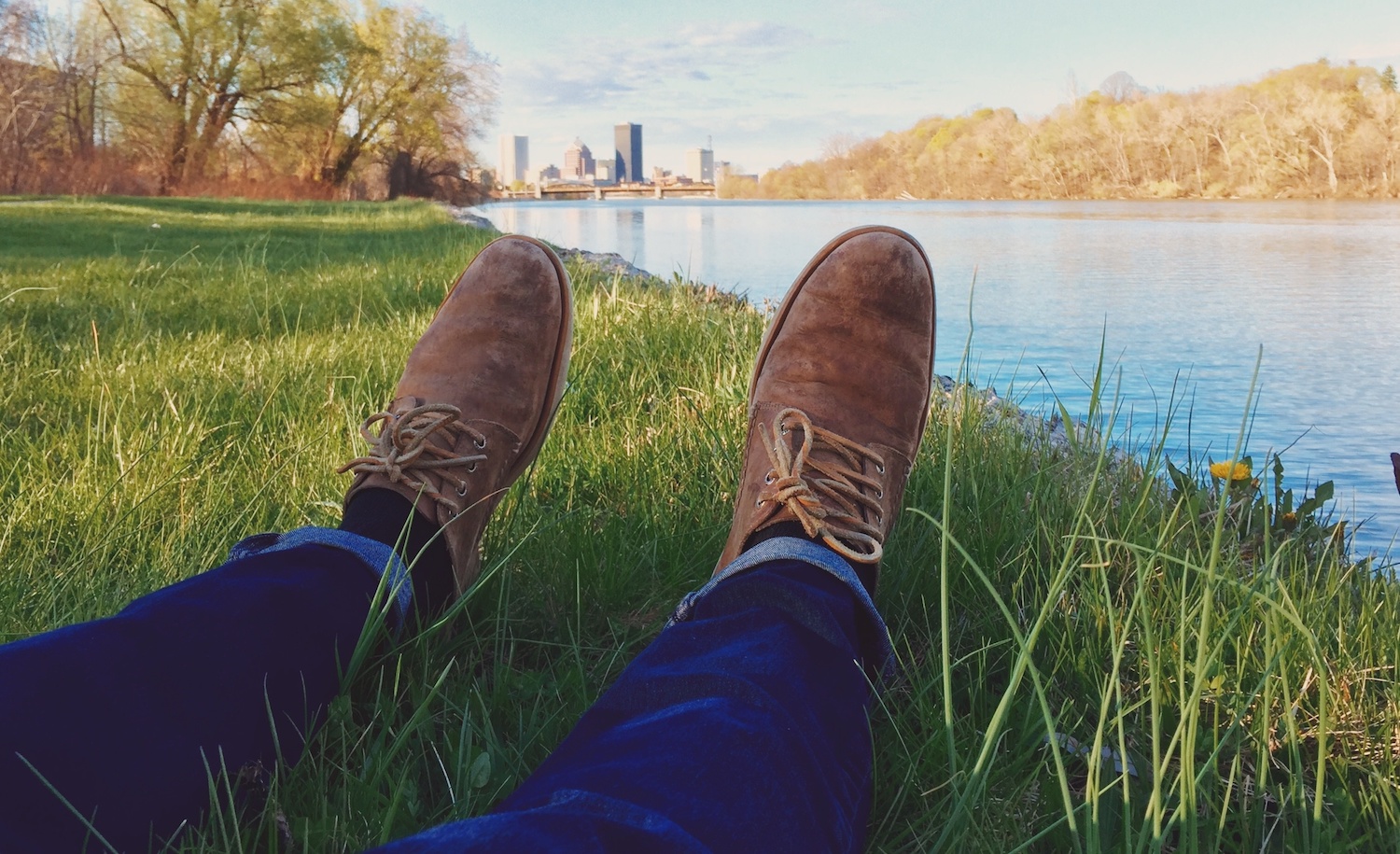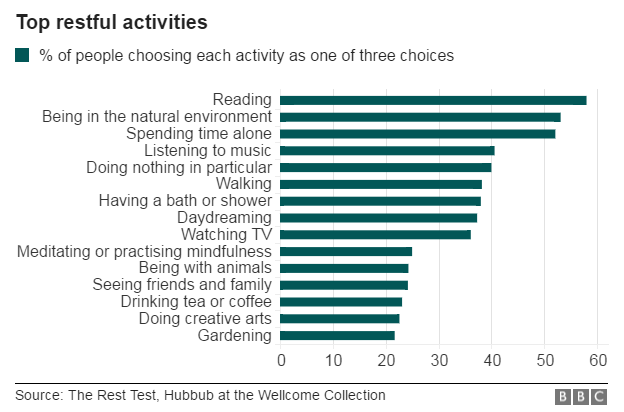Spending Time Alone Might Be the Best Way to Rest, According to Science

About a year and a half ago, the BBC and Hubbub, a research collective run by Durham University, launched a massive study into how people rest called The Rest Test. They questioned 18,000 people in 134 countries, because they wanted to understand which activities people considered restful, and if rest affects health and well-being. A few months ago, the results came in, and the researchers uncovered some important findings.
For one, most people (both introverts and extroverts) want more rest — 68 percent of the people surveyed said so. Researchers found that the optimal amount of rest that was associated with a high sense of well-being was 5-6 hours a day; however, the average amount of rest people estimated to have had the previous day was only about 3 hours.
They also learned about what people like to do when they rest. For example, for close to 40 percent of the respondents, “rest” meant walking. For about 37 percent, resting meant watching TV; 16 percent found exercising to be restful; and for a whopping 60 percent, reading was the most restful activity, followed closely by being in nature (over 50 percent). For another 40 percent, “doing nothing in particular” was their preferred way to rest.

Another interesting finding was that only 20 percent of respondents said that doing social activities, like hanging out with friends and family, was a way to rest. Contrast that with the large number of people who said that solitude was restful, which was over 50 percent. (Also, remember that 60 percent preferred to rest by reading a book? That’s usually an activity you do alone.)
Interestingly, both introverts and extroverts reported that solitude was restful. Researchers knew whether respondents were introverts or extroverts, because a second part of the study included giving them a psychological scale to determine where they placed themselves on the introvert/extrovert continuum.
“The analysis team was struck by the observation that a significant number of the top ten restful activities chosen by participants are often carried out alone,” the researchers explained in their preliminary findings. “It’s interesting to note that social activities including seeing friends and family, or drinking socially, placed lower in the rankings. It’s also not just introverts who rate being alone as a restful activity. Extroverts also value time spent alone, and voted this pastime as more restful than being in the company of other people.”
Finally, science reveals exactly what introverts have known for so long — that being alone may be the best way to get real rest.
Extroverts Get Drained by Socializing, Too
It makes sense that both introverts and extroverts would need solitude to rest, because another recent study found that extroverts, too, get tired from socializing. Two Finnish researchers had participants fill out measures of their personality, mood, and levels of fatigue. They also asked people to note how they felt and what they were doing five times a day over 12 days — which included how much they had interacted in person with someone over the last hour.
The researchers found that the more people were acting outgoing and “extroverted,” the more they reported being in a good mood and feeling lower levels of fatigue at that very moment. However, after three hours, they reported higher levels of fatigue. How tired they were depended on the number of people they had come in contact with during the last hour and the intensity of the social interactions. Surprisingly, these effects were found to be true for both introverts and extroverts.
This is the first evidence to suggest that socializing is draining for everyone. This makes sense, because socializing expends energy. Not only do you have to talk, but you also have to listen and process what’s being said. Plus, you’re taking in all kinds of sensory information, such as someone’s tone of voice and body language — along with filtering out any background noises or visual distractions. It’s no wonder people get drained.
The Very Real Differences Between Extroverts and Introverts
Regardless, there are some very real differences between extroverts and introverts. On average, introverts really do prefer solitude more than their extroverted counterparts. One of the reasons introverts enjoy alone time has to do with how introverts respond to rewards. Rewards are things like money, sex, social status, social affiliation, and even food. When you get promoted at work or convince an attractive stranger to give you his or her phone number, you’re gaining a reward.
Of course, introverts care about things like earning money, eating delicious foods, and having relationships, too. But researchers hypothesize that introverts respond differently than extroverts to rewards — especially social rewards. When compared to extroverts, introverts are less engaged, motivated, and energized by the possibilities for rewards around them. So, they talk less, are less driven, and experience less enthusiasm. In fact, they may find levels of stimulation that are rewarding and energizing for extroverts to be tiring or annoying (for example, a big party or a loud, crowded bar). When introverts become fatigued and overstimulated from socializing, they may experience something that’s been dubbed the “introvert hangover.” An introvert hangover is when you feel drained, out of sorts, and sluggish after too much socializing. And this, of course, is exactly why introverts crave the deep kind of rest that results from being alone. ![]()
You might like:
- 17 Signs That You Have an Introvert Hangover
- Why Are Words So Hard for Introverts? Here’s the Science
- 15 Signs That You’re an Introvert With High-Functioning Anxiety
- The Reason Socializing Drains Introverts More Than Extroverts
- Introverts’ and Extroverts’ Brains Really Are Different, According to Science
Did you enjoy this article? Sign up for our newsletters to get more stories like this.
